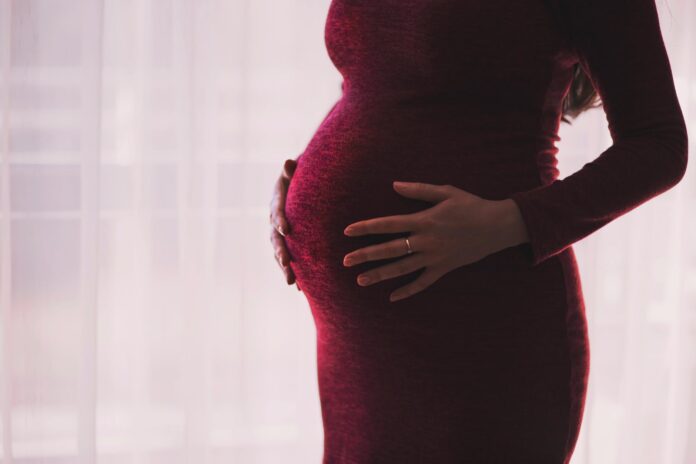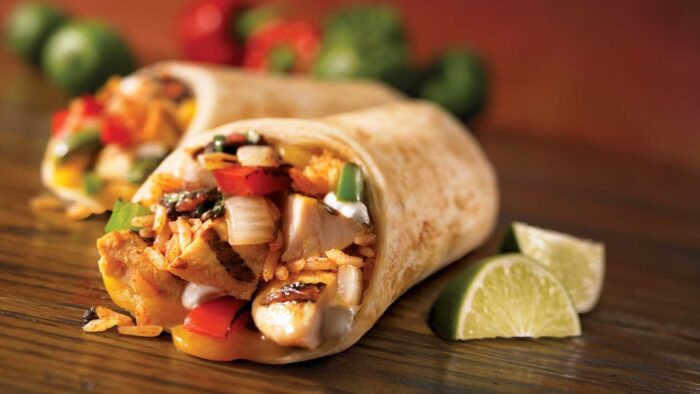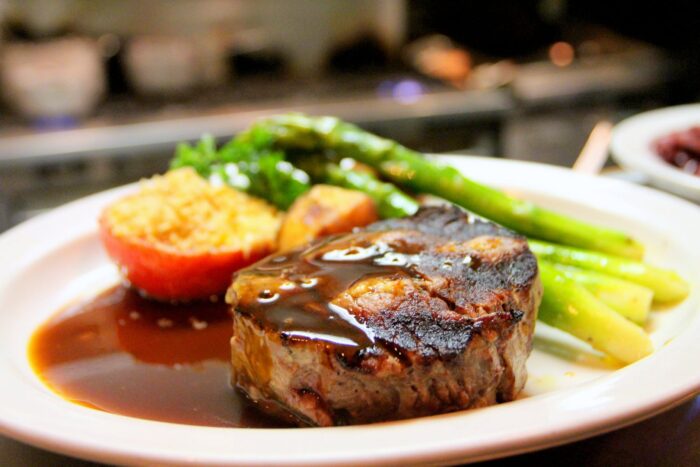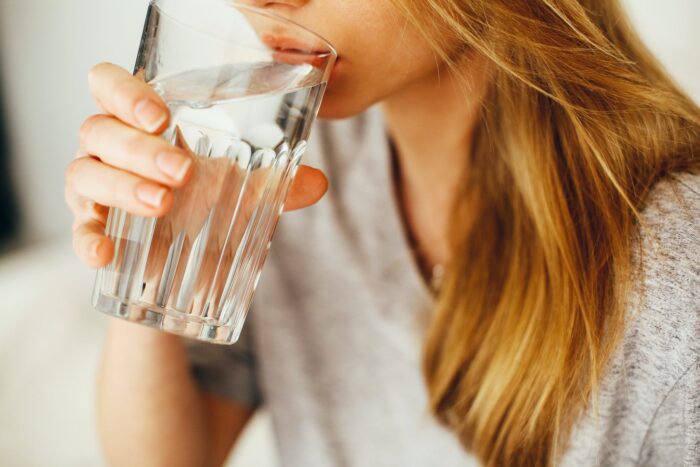
Once your pregnancy test shows those two precious lines, there comes a period of immense emotional and general changes in your life habits. Among the rest of the significant factors, proper nutrition plays a huge role in the daily life of each of us – and even more now when you should be ‘eating for two’.
But be aware – not only from quantity but also from the quality aspect. The fetus gets all the food it needs to grow and develop from what you eat, and what could possibly be more important than paying attention to what you take into your body during those nine months. Maintaining a healthy diet doesn’t mean exclusively eliminating harmful foods, although it’s quite meaningful. It’s also changing the entire diet and doing your best to provide yourself with optimal daily intake of real food that consists of all the necessary nutrients.
You must be a wee bit confused, as numerous things that you were allowed to consider your guilty pleasure now might be a definite no-no. The best time to make a nutrition plan is while you’re still planning to conceive, just in order to ensure a good start for yourself and your tiny new best friend. Visit Mominformed for an informative guide on your first pregnancy.

Or, if a positive test or a surprising ultrasound outcome caught you unprepared, beginning to take care as soon as you find out is always an option. Or hiring a nutritionist. Or simply completely eliminate some foods from use during that period. And, of course, if you plan how, when, and what you eat successfully, bringing back your weight to normal on time will be much more simple!
We’re here to help you make the right decisions about what to do and what not to do during pregnancy so that everything goes as smoothly as possible. You are going to find the answers to all your questions in the article that follows.
Ensure the intake of the most important nutrients

Among the necessary nutrients, vitamin B9 stands out as the most important. Otherwise, it’s called folic acid and all future moms are talking about it. Intake of this vitamin is crucial as it reduces the risk of incomplete development as well as heart problems. You can find it in legumes, citrus fruits, whole grains, dark green leafy vegetables, pork, fish and can also be ingested through various supplements.
Indispensable calcium is the second most important nutrient whose role is especially important in the second and third trimesters due to the proper development of bones and teeth. Dairy products are a source of calcium but don’t forget to also take iron in combination with vitamin C to create enough hemoglobin and prevent anemia. A little bit of zinc here and there is another blessing for your pregnant body and mind.
Fruits and vegetables in large quantities
This paragraph is closely related to the previous one since these foods can be used as sources of the nutrients you might need. Plant fibers reduce the possibility of constipation which can lead to hemorrhoids, and besides that, they increase satiety, so you won’t overheat constantly.
Experts recommend four to five servings of fruits and vegetables a day. Portions can be in fresh, dry, frozen form, then in the form of smoothies or juices. However, fresh and frozen forms have higher levels of vitamins and are therefore much more desirable.
Fresh fruit juices without any sugar added will do an excellent job as well. Put whatever you want inside, even the things you don’t like and you have to eat – and you might not even feel the taste.
Proteins and fats intake

Animal proteins are considered the best source of iron and essential amino acids. Sources of protein are fish, chicken, veal, eggs, and seafood. If you’re a pregnant vegetarian, it would be good to consult with your nutritionist in order to find an adequate meat protein replacement with them. Some of the suggestions are quinoa, legumes, mushrooms and nuts.
The fact is that too much fat intake can cause diabetes during a child’s life. Still, it has good fats. You can find omega 3 fatty acids in fish, olive oil or avocado. They accelerate the development of the baby’s brain and brain functions before giving birth.
Limited exposure to pesticides and foods of suspicious production
Today, coming across quality food that hasn’t been chemically treated is a true, rare gem. The presence of pesticides can endanger the immune system of an unborn baby, which is very sensitive, but also your own.
Only in the later stages of life can the results of chemically treated food intake be visible, so this danger should be taken into account as a preventive action. Also, research has shown that even a small dose of nitrate from artificial fertilizers and pesticides can affect the hormonal balance in a woman’s body.
Rinsing your fruits or vegetables will often not be enough. Especially with those with a thin rind, such as apple, strawberry, or pepper. Therefore, It would be good to buy from verified sellers or simply avoid eating the rind.
Avoiding caffeine

We all love that morning ritual and the perfect start of the day with a cup of coffee – but avoiding it during pregnancy would be advisable.
Caffeine, which is a well-known ingredient of coffee, is also contained in many other foods and drinks, such as tea, chocolate, and energy drinks. It increases the risk of losing the weight of the baby at birth and also even increases the risk of a miscarriage if we’re to believe this article. And not to even mention the health issues that might occur later.
Analgesics and other flu medications also often contain this substance, so you shouldn’t take them on your own but with a doctor’s recommendation. Experts agree that a daily intake of 200mg of coffee is not harmful, so you can afford one cup a day. However, if you’re one of those who panic and you don’t believe the research, it would be best to eliminate caffeine completely – just for the sake of your own peace.
Avoiding alcohol
The amount of alcohol that isn’t harmful to mother and child hasn’t been determined yet. Let’s just think of that little liver, which is simply not able to process the amount of alcohol that an adult’s liver processes.
So, it’s certain that, if you consume larger amounts of alcohol during pregnancy, your baby’s health might be in real danger. Some pieces of research even show that excessive consumption is often also the cause of miscarriages.
You’ll always get the same advice from the doctor, that you must eliminate these drinks completely, and as you can see, there’s a serious reason behind this. In the worst case, the child may experience facial deformity, deformity of internal organs, heart defects, as well as disorders in mental development. Therefore, you should think seriously before reaching for a glass of wine, beer, or brandy.
No smoking and intake of large amounts of water

During these nine months, drinking a huge amount of water is a must – those precious and valuable eight glasses a day will overwhelm you with numerous benefits, that’s for sure. If you keep doing the opposite, irregular hydration can easily lead to fainting and muscle weakness as well as fatigue and anxiety.
Harmful substances stay in our bodies for a long time and could cause kidney stones, hemorrhoids, and nausea. Also, the child doesn’t get enough food, and the risk of premature pregnancy increases because the lack of water causes contractions. Of course, smoking during this period can also have big consequences, so try to give up this vice in time.
Too many restrictions, you say? Well, try thinking about what you have to gain and what you have to lose. Pregnancy certainly doesn’t mean giving up absolutely everything you love, and quality foods that ensure a healthy life for you and your little pal can be surprisingly tasty. So, if you give up small vices and pleasures to ensure the smooth growth and development of your child, you’ll keep the most precious thing life has ever given to you safe.
You can also maintain a healthy diet even after pregnancy visit LifeasMama to know more.








